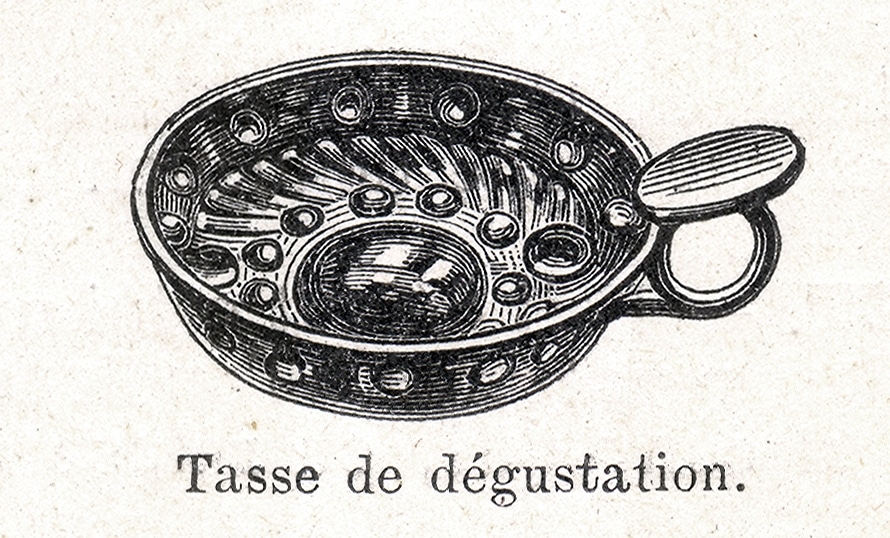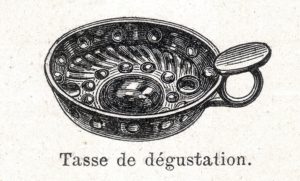
20 Sep Waiter, there is someone drinking my wine!

published before 1923 and public domain in the US.
Have you ever ordered a bottle of wine and seen the sommelier take the first sip? In some fine dining establishments like Chingale in Baltimore or the 21 Club in New York City this is common practice.
Why is this done? Once upon a time, the job of a sommelier was really that of a poison detector. Unpopular royalty counted on these servants to taste their food and drink first to avoid being sickened or killed. Some modern day sommeliers still wear the traditional silver tasting cup or tastevin around their necks – a symbol of their preparedness to perform this important task.
Now a ’days the sommelier takes the first taste to ensure the wine is in proper condition and without flaws. Flaws include corks infected with trichloroanisole or TCA, oxidation and other bacteria that can ruin the taste of a wine. The justification for this practice is that no one knows better than a trained professional whether this wine is good or has gone bad.
Is this practice still necessary? It is safe to assume that the threat of poisoned wines is practically nonexistent in modern times so why are sommeliers still tasting first, especially since they can usually detect TCA infected wine by just smelling the bottle?
Many of my peers will argue that most consumers are not sophisticated enough to detect flaws in wine so this practice makes sense. They worry that these novices will accept and suffer through a flawed bottle needlessly. My response is: if you’re so concerned about a flawed bottle not being identified, then how about communicating with the consumer and if necessary, educating them at the table?
In my opinion this “first taste” practice should be done only at the consumer’s discretion. Ideally the sommelier would approach the table, present the wine and then ask if the customer was comfortable with him testing the wine or if he wanted to do so himself. Educated consumers might prefer to do this themselves and the more inexperienced would probably be relieved to allow the sommelier to proceed.
The practice of tasting without asking just does not sit right with me. I’ve heard the argument that “this is much like a chef tasting the food”. I’m not sure where they eat but I have never seen a Chef (other than my husband) taste my food at the table. Sure, the chef may taste the sauce but they are NOT cutting into my porterhouse steak! I might change my mind on the matter when I’m Queen but until then; a server who can barely open the wine correctly tasting my 1999 Aldo Conterno Gran Bussia Barolo? I think not!
I’d love to know what YOU think so feel free to leave a comment below.
Cheers,
Laurie
PS: My friend and fellow sommelier Chris Coker of Coker’s Corner has a completely different if not misguided opinion. Check out his thoughts here
